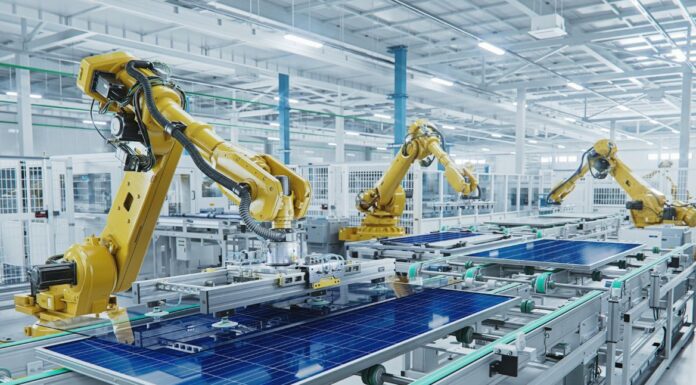
Zebra Technologies, a digital solutions provider, announced its 2024 Manufacturing Vision Study, revealing that 61 per cent of manufacturers globally anticipate AI-driven growth by 2029, up from 41 per cent in 2024.
In the Asia-Pacific (APAC) region, 68 per cent of manufacturers anticipate AI-driven growth by 2029, up from 46 per cent in 2024.
This increase in AI adoption, coupled with 92 per cent of global and 87 per cent of APAC respondents prioritising digital transformation, highlights manufacturers’ dedication to enhancing data management and using new technologies to improve visibility and quality in the manufacturing process.
Despite the emphasis on digital transformation, approximately 30 per cent to 40 per cent of global and APAC respondents recognise obstacles, including labour costs and availability, scaling technology solutions, and the convergence of information technology and operational technology (IT/OT).
“Manufacturers recognize the need to adopt AI and other digital technology solutions to leverage their data effectively and create an agile, efficient manufacturing environment,” said Colin Hughes, Regional Sales Manager for ANZ, Zebra Technologies.
“While only 30% of manufacturing leaders use machine vision across the plant floor in APAC, 67% are implementing or planning to deploy this technology within the next five years. Zebra’s solutions help manufacturers work with technology in new ways to automate and augment workflows, achieving a well-connected plant floor where people and technology collaborate at scale.”
Further findings show that only 16 per cent of manufacturing leaders globally report real-time, work-in-progress (WIP) monitoring across the entire manufacturing process, compared to 25 per cent of APAC manufacturing leaders.
While 57 per cent of global and 63 per cent of APAC manufacturing leaders expect to increase visibility across production and throughout the supply chain by 2029, about one-third of leaders (33 per cent globally, 38 per cent in APAC) identify IT and OT agreement on investment priorities as a barrier to digital transformation.
Additionally, 86 per cent of global manufacturing leaders struggle to keep pace with technological innovation and securely integrate devices, sensors, and technologies throughout their facilities and supply chain, with 82 per cent of APAC manufacturing leaders sharing this concern.
Zebra’s study shows manufacturers are shifting their growth strategies by integrating and augmenting workers with AI and other technologies to transform manufacturing and build a skilled workforce over the next five years.
Nearly three-quarters (73 per cent) of global manufacturing leaders plan to reskill labour to enhance data and technology usage skills, with seven in 10 expecting to augment workers with mobility-enabling technology.
These views are shared by 76 per cent and 75 per cent of APAC manufacturing leaders, respectively.
Technology tools being implemented by manufacturing leaders include tablets (51% globally, 52% in APAC), mobile computers (55% globally, 53% in APAC), and workforce management software (56% globally, 62% in APAC).
Additionally, 61 per cent of global and 65% of APAC manufacturing leaders plan to use wearable mobile computers to augment their evolving workforce.
Manufacturing leaders across the C-Suite, IT, and OT understand that labour initiatives must extend beyond improving worker efficiency and productivity with technology.
Six in 10 global and APAC leaders prioritise ongoing development, retraining/upskilling, and career path development to attract future talent.


















